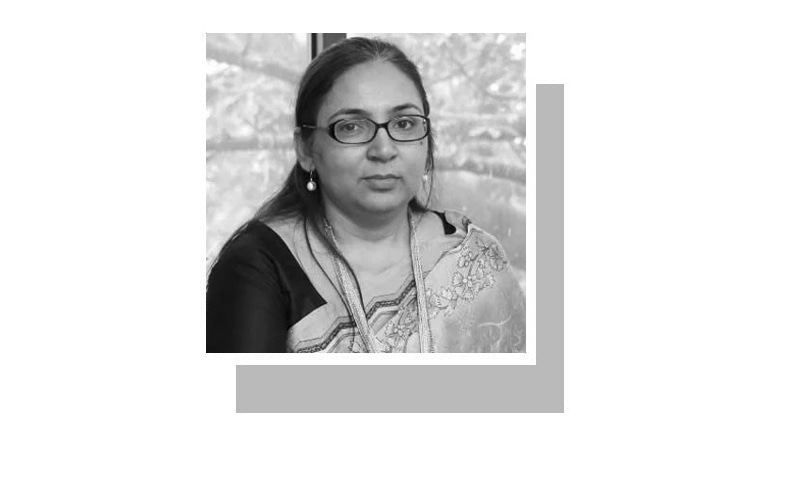By Dr Nadia Tahir
Published in Dawn on August 03, 2024
IS it good luck or good policies that matter more for a resilient economy? IMF programmes for Pakistan offer valuable insights. With the IMF’s Stand-by Arrangement (SBA), our economy has shown some maturity.
Our total foreign exchange reserves are $14.3 billion, and the inflation rate has come down significantly from 38 per cent in May 2023 to 11.8pc in May 2024. The exchange rate has been tamed, with the dollar exchange rate hovering around Rs280. The primary balance is in surplus because of a check on non-interest spending. All these indicators are signs of recovery after the SBA and the current staff-level agreement.
In recent years, the phenomenon of ‘neo institutionalism’ has examined the role of institutions in shaping policy formation and its outcomes. According to NI, human actions are structured by institutions. Precedent is key in institution formation, but simultaneously, a hindrance in structuring non-partisan policies.
With the staff-level approval of the Extended Fund Facility from the IMF, Pakistan is set for another term of stabilisation. This time, it is a soft stabilising growth programme, not a hard stabilisation one, which is harmful to growth. The EFF plans to roll out $7bn over 37 months, aiming to capitalise on hard-won macroeconomic stability. For many, it is a wish list; for others, it is wishful thinking.
A discussion has started on the will, desire, and capability to spearhead reforms. The common narrative is that these reforms are essential to correct market rigidities and widen the tax net. Can these reforms make a dent in our elitist and rent-seeking culture? Let us examine some prescribed policies agreed upon for stabilising growth in the economy.
Can the reforms make a dent in our elitist and rent-seeking culture?
Firstly, there must be an increase in tax revenues by 1.5pc of GDP in FY25 and 3pc over the duration of the programme. IMF experts prescribe the collection of more taxes from retailers, feudal lords, and exporters. However, taxing these sectors will shrink growth prospects, and it is a significant challenge for the government. The EFF is silent on the tax collection strategy. It only says the government should collect more taxes through direct and indirect measures.
There is agreement on increasing the tax net and bringing more people into it, but the devil lies in the details. The presumptive tax regime has been censured by individuals and businesses. There is a demand for a progressive tax system, including the overhaul of the FBR and possibly a single national tax authority for collecting all types of revenues. Can we turn around the FBR and the taxation policy so quickly?
At least there is no precedent to support the assumption that we can. IMF experts must have a sound basis for believing that $7bn in the next three years is a good enough incentive to undertake this expensive reform. The IMF’s desire to have more taxes is correct, but is it the right time after the budget approval? For good policy, timing is everything, and where developing a policy for restructuring the FBR and bringing more people into the tax net is concerned, the timing is not in our favour.
Secondly, controlling demand through increasing interest rates in a country where food security, along with stunted growth among children, is an issue, is debatable. There is another debate on whether controlling inflation and the exchange rate results from macroeconomic policies or entirely fortuitous exogenous and non-policy-related factors. It is difficult to tell. There is discomfort with high interest rates, and local investors are waiting for the monetary stance to be eased. Salaried individuals hope for a lesser tax burden and an expansionary fiscal policy. Can the reforms outlined in the EFF for the next 37 months meet these expectations?
Thirdly, restoring the energy sector and refraining from further unnecessary expansion of the generation capacity is another contentious issue. IPP agreements and contract re-negotiations are not easy to handle. People and businesses need competitive rates for electricity. Arbitration and dispute resolution mechanisms need a strong federal government. This needs good luck and good policies both.
Fourthly, the IMF is mindful of and is respecting the rights of the provinces while demanding full harmonisation of the agricultural income tax regime with federal income and corporate taxes. The Fund expects this to be completed by Jan 1, 2025. Consensus is required not only for imposing taxes, but also for the tax collection methodology — should it be ‘produced index unit’ or ‘gross value’? Without farm productivity data, it is not easy to decide. Problems with landholding data is another challenge.
Another agenda item is cutting public expenditure and subsidies. Fiscal adjustment in spending, rather than increasing tax revenues in a shrinking economy, is generally considered a better option. Promoting the private sector and removing state distortions or selling state-owned enterprises has been on the agenda since the early 1990s. In this budget, the government indicated that Rs30bn would be collected from privatisation proceeds. Improving SOE operations and management is a challenging task, requiring changes in governance rules and restructuring of the boards of the respective state-owned enterprises.
Pakistan has experienced 24 cycles of reforms with the IMF. With foreign liabilities due in the coming year, the situation will be no different from the times we have asked friends and partners to roll over debt liabilities. Investors demand quick solutions before investing in Pakistan, and waiting for good luck is not an appealing strategy.
Can we afford to wait for good luck? The SBA barely stabilised the economy, and we narrowly escaped default. With EFF approval on the horizon, we are planning for a moderate growth of 3.6pc of GDP. History teaches us that the pursuit of growth can land the economy in a precarious situation. For a resilient economy, we have to earn good luck through good policies.






